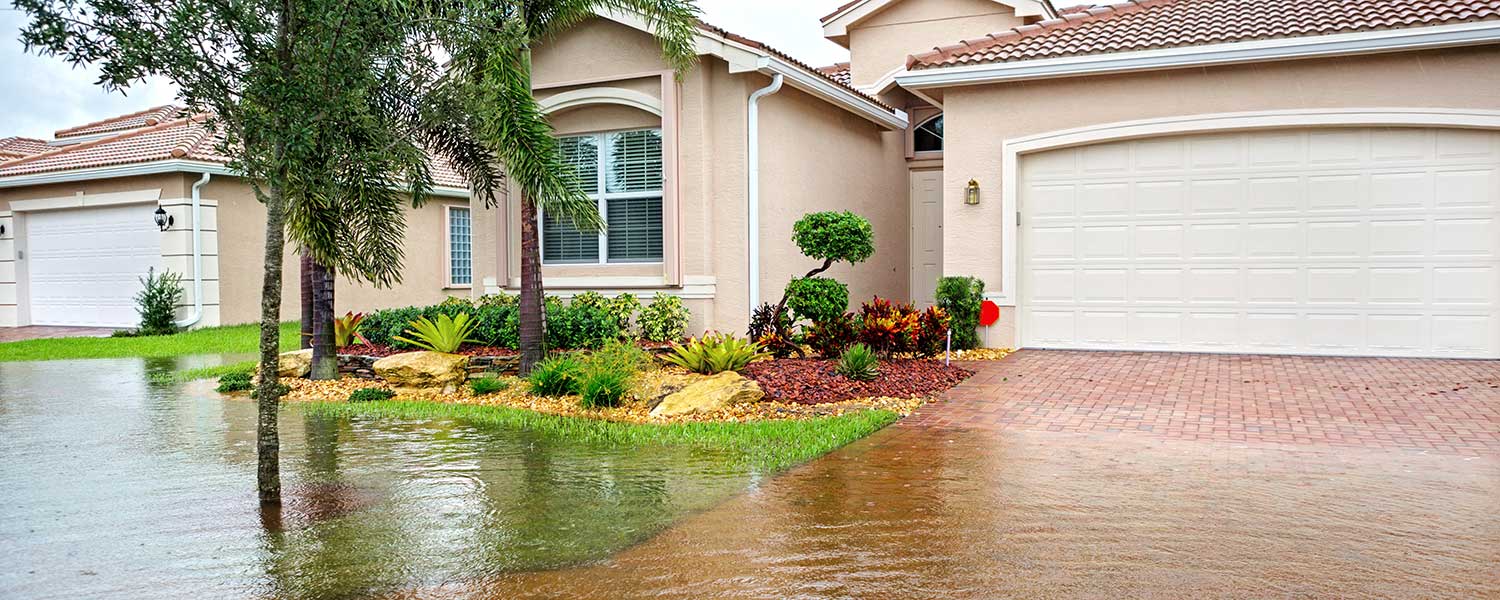
06 Aug 2019
How Flood Insurance Affects a Hurricane Damage Claim
Do you own a home? Have you read your homeowners insurance policy, painstakingly scouring through it to understand every nuance behind each word?
Don’t be ashamed, not many people do.
But that’s a big problem—as those who’ve had their home ravaged by a hurricane have found out.
You see, many insurance companies consider flooding a separate issue than, say, wind and rain damage. But, from a homeowner’s point of view, flooding is inextricably linked to the hazards created by a hurricane. Ergo, homeowners assumed their policies would cover the damage sustained from rising floodwater.
Unfortunately, that assumption would prove costly (more on that later).
Home Insurance ≠ Flood Insurance
Why do insurance companies view flooding as a separate hazard? The short, easy answer is the potential risk. Insurance companies, like any commercial venture, need to be profitable to stay in business. Flood insurance can be expensive to the consumer, which means less people may opt to purchase the additional coverage. So in the event of a disaster, paying out claims from a smaller pool of funds could prove financially catastrophic for an insurance company.
But it’s not just the insurance companies’ problem—it would be equally catastrophic from the homeowner’s perspective too. Imagine carrying a proper flood policy on your home, only to find that your insurance company does not have the funds to pay out your claim.
That’s why Uncle Sam stepped in to help.
Enter the Federal Government
To ensure that U.S. citizens had access to flood insurance at a reasonable cost, the government introduced the National Flood Insurance Act.
A common misconception is that this legislation is relatively new. Truth is, it’s been around since 1968—pre-dating the Federal Emergency Management Agency (FEMA) by about a decade. And it’s evolved several times, incorporating key reforms—like making flood insurance mandatory in certain scenarios and integrating maps to indicate flood risk for homes located in specific areas of the country.
Hurricane Katrina
In 2005, Hurricane Katrina really brought this issue to light. As alluded to above, many homeowners in and around the Gulf Coast area erroneously assumed their current policies covered flood damage. As a result, very few purchased supplemental flood insurance.
In the aftermath of Katrina, these homeowners were shocked to find many of their claims were denied by the insurance companies on the grounds that specific damage was created not by wind or rain, but rather by flooding.
Homes were destroyed. People were outraged. Reports of homeowners claiming they’d been misled by insurance companies made the national news.
Suffice it to say, the courts got involved.
Flood Insurance and the Courts
The first major flood insurance case handled in the post-Katrina world was 2006’s Buente v. Allstate Prop. & Cas. Ins. Co. (Buente v. Allstate Prop. & Cas. Ins. Co., 2006 U.S. Dist. LEXIS 23742, 2006 WL 980784). You can click the hyperlink above to read extensive details on the case on the Lexis Advance® service.
The plaintiff’s home was damaged by waters stemming from the storm surge, yet their insurance policy specifically excluded damage caused by flooding. The court, citing previous decisions, ruled that the insurance company’s exclusionary clause on flood damage was valid and, as such, were within their legal right to deny the plaintiff’s claim.
But this case was just the beginning. A myriad of other cases stemming from Hurricane Katrina wound their way through the judicial system. Courts often had to determine whether specific damage was caused by wind, rain or flood waters. Other cases centered around the specific language insurance agents used with homeowners when creating/updating policies.
Moving Forward
If there is a silver lining to this issue, it’s that flood insurance awareness is increasing. FEMA began a public awareness campaign that included radio and TV commercials. More homeowners now realize that a standard homeowners insurance policy may not cut it in the event of a flood. Having more cases on the books also means more precedent to draw from, potentially making it easier for insurance lawyers to build strong legal strategies.
